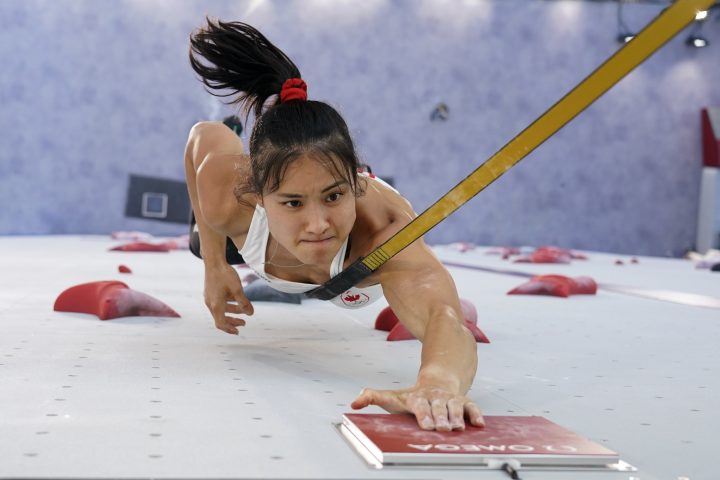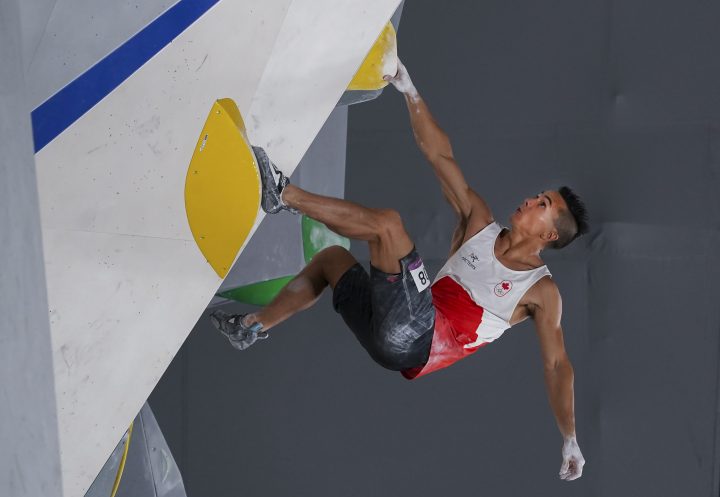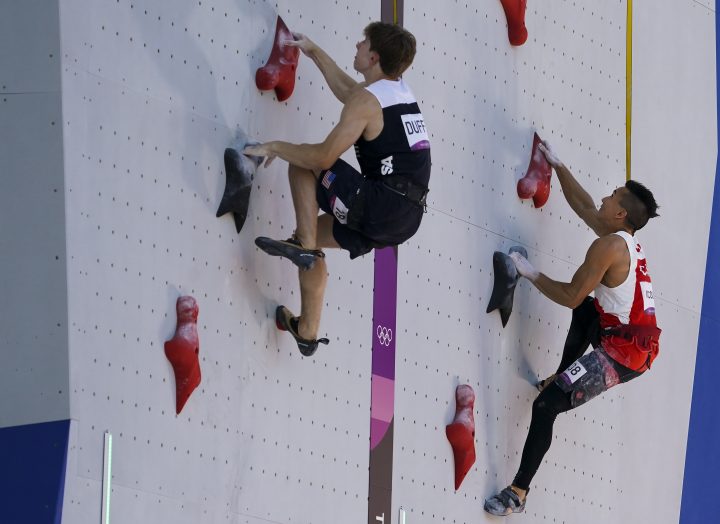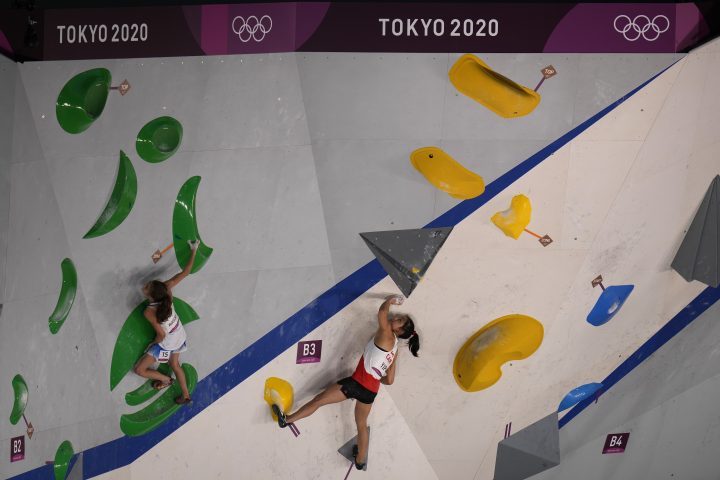For the first time in the history of the Olympics, athletes are climbing their way to the podium — quite literally.

Sport climbing is making its Olympic debut in Tokyo, with 40 international male and female climbers competing in three disciplines and vying to get their hands on the medals.
The event kicked off on Tuesday with the qualifying round, and will run until Friday with the women’s final. The men will compete for medals in their own final Thursday.
Sean McColl and Alannah Yip from Vancouver, B.C. were part of Canada’s first-ever Olympic sport climbing squad.
Neither advanced to the final round, but came away setting their personal best times in the speed portion of the competition.
Andrew Wilson, high performance director and national team coach for Climbing Escalade Canada, said competing at the Olympics for the first time was a “groundbreaking exposure” of the sport to the rest of the world.
“I’m going to leave here with this incredible feeling of us being included in the Olympic family in Canada and being a part of this going forward, and I think it’s going to make a big difference for our sport,” he told Global in an interview on Wednesday from Tokyo, Japan.
In 2016, the International Olympic Committee (IOC) officially decided to include sport climbing — along with surfing, karate and skateboarding — at the Tokyo Games for the first time.
The rules

Get daily National news
Sport climbing is a lot like rock climbing, but instead of an actual mountain, the competitors scale an artificial vertical wall using their bare hands.
Climbers can use ropes and a safety harness, but no other equipment is allowed.
In the combined format at the Tokyo Games, athletes are competing in the following three disciplines:
Speed
The speed event pits two athletes against each other as they attempt to climb side by side on a 15-metre wall.
The winning time for men is between five to six seconds while women usually win in seven to eight seconds – making speed climbing the fastest event at the Olympics.
Both McColl and Yip set their personal best time during the qualifiers. McColl finished in 6.93 seconds, while Yip clocked a new Canadian record for speed with 7.99 seconds.
Bouldering
Bouldering is a power or strength-based event. Athletes aim to complete a number of fixed routes, referred to as problems, on a 4.5-metre wall in a specified time.
Climbers have five minutes to solve each problem and the goal is to be the climber to get to the most number of tops in the least amount of attempts.
Lead
Lead involves athletes attempting to climb as high as they can within six minutes on a wall measuring more than 15 metres in height. This is an endurance-based discipline.
How are the medals decided?
One set of medals will be awarded for both the men and women. All climbers compete in the three disciplines, once in the qualifying rounds and once more in the finals.
Final rankings are determined by multiplying the climbers’ placement in each discipline, with athletes achieving the lowest scores winning medals.
Eight men and eight women have qualified for the final. The men’s final is on Thursday, starting with the speed event at 5.30 p.m. local time (4.30 a.m. ET).
The women’s final is at the same time on Friday.

Growing popularity
Sport climbing is a relatively new sport, with international competitions dating back to the 1980s.
Its popularity is surging in Canada and around the world thanks to an uptick in the number of indoor climbing gyms that have sprung up in recent years.
“It’s actually growing tremendously in Canada,” said Christiane Marceau, executive director of Climbing Escalade Canada.
She told Global News there are up to 150 to 175 climbing gyms across Canada right now.
“When you look at the number of indoor climbing gyms in the country they have been exploding in the last 10 years,” she said.

Following the 2016 announcement of the sport’s inclusion at the Olympics and in the lead up to the Tokyo Games, Wilson said he has seen a big jump in the participation.
Sport climbing is also confirmed to feature at the next Summer Olympics in Paris in 2024.
Marceau is hopeful that the sport’s recognition at the Tokyo Olympics will further increase its popularity in Canada.
“The visibility is not exactly the same as if it would be in the same time zone as us, but the expectation is that at the grassroots level, you’ll have an increase of participation,” she said.
Wilson agreed: “I foresee that it’s going to give us a bigger athlete pool to develop athletes from and that’s an enormous thing.”








Comments
Want to discuss? Please read our Commenting Policy first.